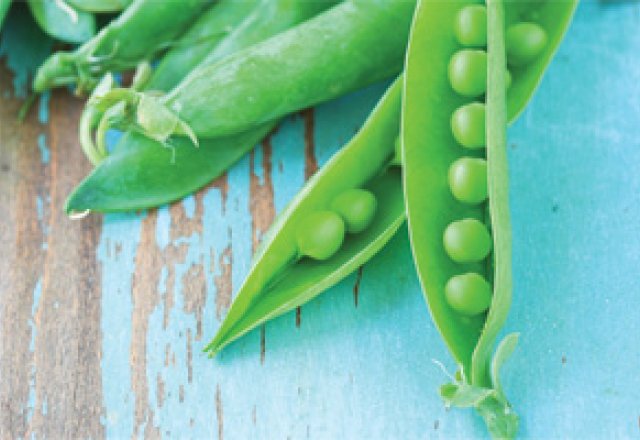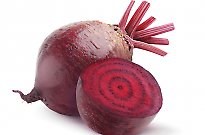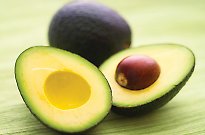
Liver cleanse: is it for you?

We quiz The Liver Doctor, Sandra Cabot
Find out the importance of maintaining balance in your diet and lifestyle all year round, without the restriction of diets or the guilt that comes with overindulgence
On a personal level, where do your weaknesses lie within your diet? What tips do you have for our readers, to help keep those weaknesses at bay?
I have found that people who don’t eat enough protein and good fats are more likely to crave sugar and carbohydrate rich foods. I eat substantial, filling meals comprised of protein such as eggs, chicken, seafood or meat, along with lots of vegetables and good fats like olive oil, avocados and organic coconut oil. I snack on raw nuts and seeds if I get hungry. My focus is to nourish my body with nutrients that allow me to feel my best. When I crave a sugary treat, I have a small portion and don’t fret about it. Often, people are overly concerned about their weight and this leads them to being ‘really good’ alternating with ‘really bad’. I focus on eating delicious food each day that is high in healthy fats, so I feel completely satisfied after meals and am not left craving sweets afterwards.
At what point in your life did you discover the importance of a liver cleanse? What sparked and drove your passion to educate and promote this to others?
It took me more than 20 years of medical practice before I recognised the importance of the liver for metabolism and longevity. I had seen so many patients who complained of feeling unwell; they did not have a diagnosable disease, but they were far from well. I realised that improving their liver function was a key to improving their wellbeing. These days I see an increasing number of patients at my clinic with fatty liver disease. Most GPs dismiss it as insignificant and just tell their patients to lose weight. The ironic thing is it’s very difficult and nearly impossible to lose weight if you’ve got a fatty liver unless you specifically work on improving liver health.
What does a liver cleanse mean to you, and how important is it?
The liver is really the hardest-working organ in the body. In modern life we are exposed to an ever-increasing variety of chemicals, whether from environmental pollution or foods, so I believe a regular liver cleanse is critical. A liver cleanse means taking a break from ingesting toxins, and providing the liver with the nutrients it needs to cleanse and repair itself.
How can one physically and mentally benefit from a liver cleanse?
The food we eat affects our body and mind in profound ways. Most people can expect to experience a significant increase in energy. They will also feel more mentally sharp, be able to think more clearly and have more stable moods and emotions. Poor diet is a big contributor to anxiety and depression.
Are there differences between a liver cleanse and a full body detox?
The liver is the main detoxification organ in the body, so a liver cleanse will effectively detox the whole body. Healthy bowel function is critical to excreting the wastes that get secreted into the intestines from the liver and gallbladder; therefore, some people require a fibre supplement. Exercise, massage and dry skin brushing help to excrete toxins through the skin. Drinking lots of water and herbal tea will assist kidney detoxification.
Can you recommend a few key pointers to help a beginner kickstart their path to a liver cleanse and detox?
Try to gradually cut down your sugar intake. Many people consume far more sugar than they realise because it’s found in so many processed foods that people don’t necessarily associate as being sweet. Sugar can be quite addictive and some people get terrible withdrawal symptoms; like intense fatigue, mood swings, aches and pains. Also try to increase your vegetable intake and drink more water.
For those on a budget, can a liver cleanse and detox be inexpensive?
Yes, it can definitely be inexpensive depending on where you shop. Often, fruit and vegetables are much less expensive at the local green grocer or farmers’ market than the supermarket. Similarly, raw nuts and seeds can often be purchased in bulk at these stores rather than small packets from the supermarket. Most people can grow their own herbs in a vegetable patch or in pots. Free-range chicken, eggs and canned sardines are relatively inexpensive and excellent sources of protein. I believe eating well is a wise investment in your health; it’s better to pay a bit more now and maintain good health rather than pay later. Illness is quite expensive.
Is it possible to live a detoxing lifestyle every day?
Yes definitely. I think what we eat 365 days of the year is far more important than the odd sporadic detox. I think people need to learn as much as possible about healthy eating and then find out what works best for their bodies. If you can learn about why specifically eating well will improve your health, you’ll be more motivated to maintain a healthy diet.
For those already taking part in liver cleansing and detoxing, what further points can you recommend to help them step it up to the next level?
This depends on the individual and whether they have any health problems. People with allergies or autoimmune disease are usually best off avoiding gluten and dairy products. People who are overweight or have a family history of diabetes are best off keeping their carbohydrate intake low. Indoor workers are prone to vitamin D deficiency. People who are under a lot of stress are probably magnesium deficient. Having a personalised consultation can be very helpful.
What is a simple food one can include in their day-to-day diet to aid in healthy liver function?
Non-starchy vegetables, such as radishes, celery, leafy vegetables, cucumbers and snow peas. We are lucky in Australia to have such fresh and bountiful vegetables at this time of year.
What are a few important supplements most people could benefit from to aid in natural detoxification?
Selenium – because the soils in Australia and New Zealand are notoriously deficient in this mineral. It is required for the production of glutathione peroxidase, which is the body’s own powerful antioxidant and required for liver detoxification. The herb St Mary’s thistle helps to protect liver cells from harm and it even helps to repair and regenerate damaged liver cells. The amino acid taurine helps liver detoxification and it also helps with bile production. Bile is the excretion route for toxins that have passed through the liver.
Thank you for your time and sharing your wonderful knowledge Dr Cabot. So to our readers, how will you be celebrating the new year?
It seems prevalent that the new year brings an opportunity to create a new you, in regard to taking action in a healthy, balanced diet and lifestyle. Remain positive; teach yourself to have dietary ‘treats’, and not ‘cheats’. Encourage your mindset to appreciate the social side and holidays of the festive season; food is not the main focus.
Gather naturally detoxifying foods and whip up nutritious recipes, treat your body with the goodness you can get out of a homemade organic dessert; enjoy the food you eat. As the expert, Dr Sandra Cabot says, “Eating well is a wise investment in your health; it’s better to pay a bit more now and maintain good health rather than pay later. Illness is quite expensive.”
Next: Try the Oestrogen Detox or change your diet for the better! Don't forget to connect with us on Facebook!


